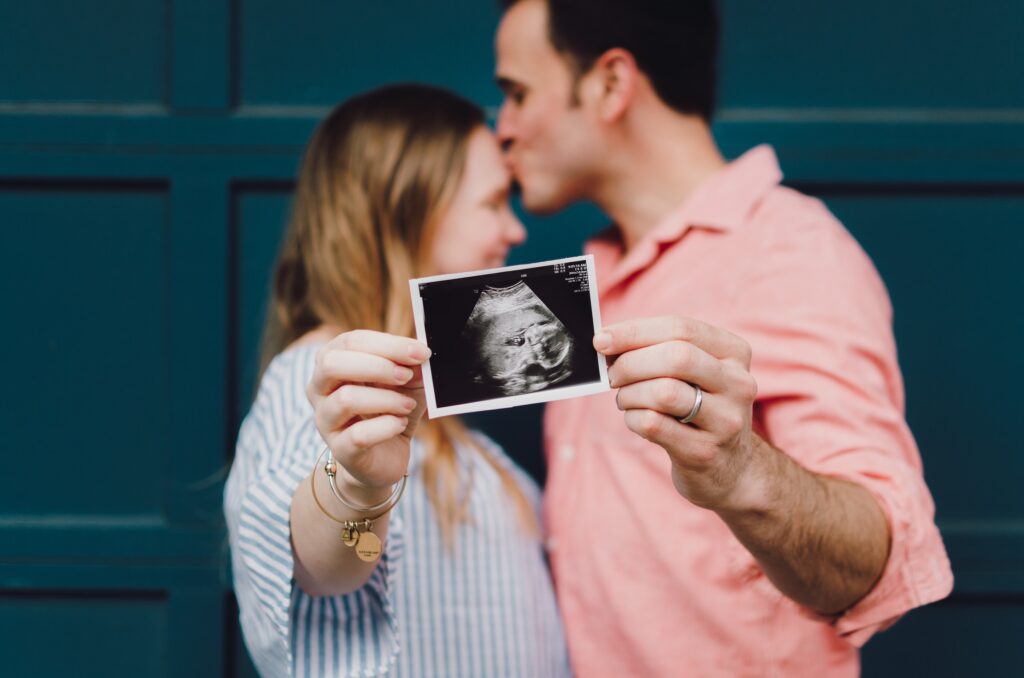The more you have the higher the probability that you are pregnant.
A lot of my friends are unaware of been pregnant until they are well into 8 weeks. Especially, those who do are not planning to have babies may be oblivious of fetus breathing and growing right inside of them until it’s too late.
Frankly, the only way to know you are pregnant is taking a pregnancy test but unfortunately, pregnancy tests can show results as early as 3-6 days before your missed period. However, all pregnancy tests are most accurate if you wait until after your period is late. Around eight days after ovulation, trace levels of hCG can be detected from an early pregnancy. The earliest most at-home pregnancy tests will read positive is 10 days after conception.
There are some signs that will show you if you may be carrying a baby inside of you as early as 2 weeks and all its takes (1) you had unprotected sex and (2) you understand your body.

Detecting and identifying Early signs of pregnancy is essential for the health of both the mother and the developing fetus.
While a missed period is usually the first sign of pregnancy, there are several other symptoms that can indicate pregnancy in its early stages.
These symptoms can vary from woman to woman and can also be caused by other conditions.
However, being aware of these signs can help you identify pregnancy early and seek the necessary medical care.
In this article, we will explore 25 early signs of pregnancy that you should watch out for.
25 Early signs of pregnancy
- A missed period is usually the first sign of pregnancy
- Nausea and Vomiting: Morning sickness is a common symptom of pregnancy, which can occur any time of the day.
- Fatigue: Feeling tired and exhausted is a common symptom of pregnancy, especially during the first trimester.
- Tender or Swollen Breasts: Hormonal changes can cause your breasts to become sore, tender, or swollen.
- Frequent Urination: During pregnancy, your body produces more blood, which leads to increased urine production and more frequent trips to the bathroom.
- Nasal congestion or nosebleeds: Increased blood flow and hormonal changes during pregnancy can cause swelling of the nasal passages, leading to congestion or nosebleeds.
- Dental problems: Pregnant women are more susceptible to gum disease and tooth decay due to hormonal changes and increased blood flow.
- Changes in libido: Some women experience an increase in sexual desire during pregnancy, while others may experience a decrease.
- Vivid dreams: Hormonal changes and increased stress during pregnancy can lead to more vivid or intense dreams.
- Increased saliva production: Some women may experience excessive saliva production during pregnancy, which can lead to drooling or difficulty swallowing.
- Skin changes: Hormonal changes during pregnancy can lead to changes in skin pigmentation, acne, or itchy skin.
- Changes in hair growth: Some women may experience increased hair growth or changes in hair texture during pregnancy.
- Food Cravings or Aversions: Many women experience food cravings or aversions during pregnancy, which can be caused by hormonal changes.
- Mood Swings: Hormonal changes during pregnancy can cause mood swings and emotional changes.
- Constipation: Hormonal changes during pregnancy can also slow down digestion, leading to constipation.
- Headaches: Hormonal changes, stress, and dehydration can cause headaches during pregnancy.
- Dizziness: Changes in blood pressure and circulation can cause dizziness and lightheadedness during pregnancy.
- Spotting or Cramping: Some women may experience light spotting or cramping during early pregnancy, which is usually normal.
- Bloating: Hormonal changes during pregnancy can cause bloating and gas.
- Acne: Hormonal changes can cause acne during pregnancy.
- Shortness of Breath: As the uterus grows, it can put pressure on the diaphragm, making it harder to breathe.
- Back Pain: Hormonal changes and the weight of the growing uterus can cause back pain during pregnancy.
- Swelling: Swelling in the feet, ankles, and hands is common during pregnancy.
- Itching: Hormonal changes during pregnancy can cause itching, especially on the abdomen and breasts.
- High Basal Body Temperature: If you track your basal body temperature, you may notice that it stays elevated after ovulation, indicating that you may be pregnant.

If you are still in doubt of been pregnant,
The first step is to take a pregnancy test. You can purchase over-the-counter pregnancy tests at most drugstores or online.
These tests work by detecting the presence of the hormone human chorionic gonadotropin (hCG) in your urine. It is important to follow the instructions carefully and to wait the recommended amount of time before reading the results.
If the test is positive, you should schedule an appointment with your healthcare provider to confirm the pregnancy and discuss your options for prenatal care. They can also provide you with important information on maintaining a healthy pregnancy, such as nutrition and exercise recommendations, and answer any questions you may have.
If the test is negative, but you continue to experience symptoms or have concerns, you should schedule an appointment with your healthcare provider. They can perform a physical exam and run additional tests if necessary to determine the cause of your symptoms
8 Hidden Pregnancy Signs
- Changes in bowel movements: Hormonal changes during pregnancy can lead to constipation or diarrhea.
- Nasal congestion or nosebleeds: Increased blood flow and hormonal changes during pregnancy can cause swelling of the nasal passages, leading to congestion or nosebleeds.
- Dental problems: Pregnant women are more susceptible to gum disease and tooth decay due to hormonal changes and increased blood flow.
- Changes in libido: Some women experience an increase in sexual desire during pregnancy, while others may experience a decrease.
- Vivid dreams: Hormonal changes and increased stress during pregnancy can lead to more vivid or intense dreams.
- Increased saliva production: Some women may experience excessive saliva production during pregnancy, which can lead to drooling or difficulty swallowing.
- Skin changes: Hormonal changes during pregnancy can lead to changes in skin pigmentation, acne, or itchy skin.
- Changes in hair growth: Some women may experience increased hair growth or changes in hair texture during pregnancy.
It is important to note that these hidden pregnancy signs can also be caused by other conditions, and may not necessarily indicate pregnancy on their own.
If you suspect you may be pregnant, it is always best to take a pregnancy test and speak with your healthcare provider.
Conclusion
Remember that it is normal to have doubts or concerns about pregnancy, and it is always better to err on the side of caution and seek medical advice if you are unsure


